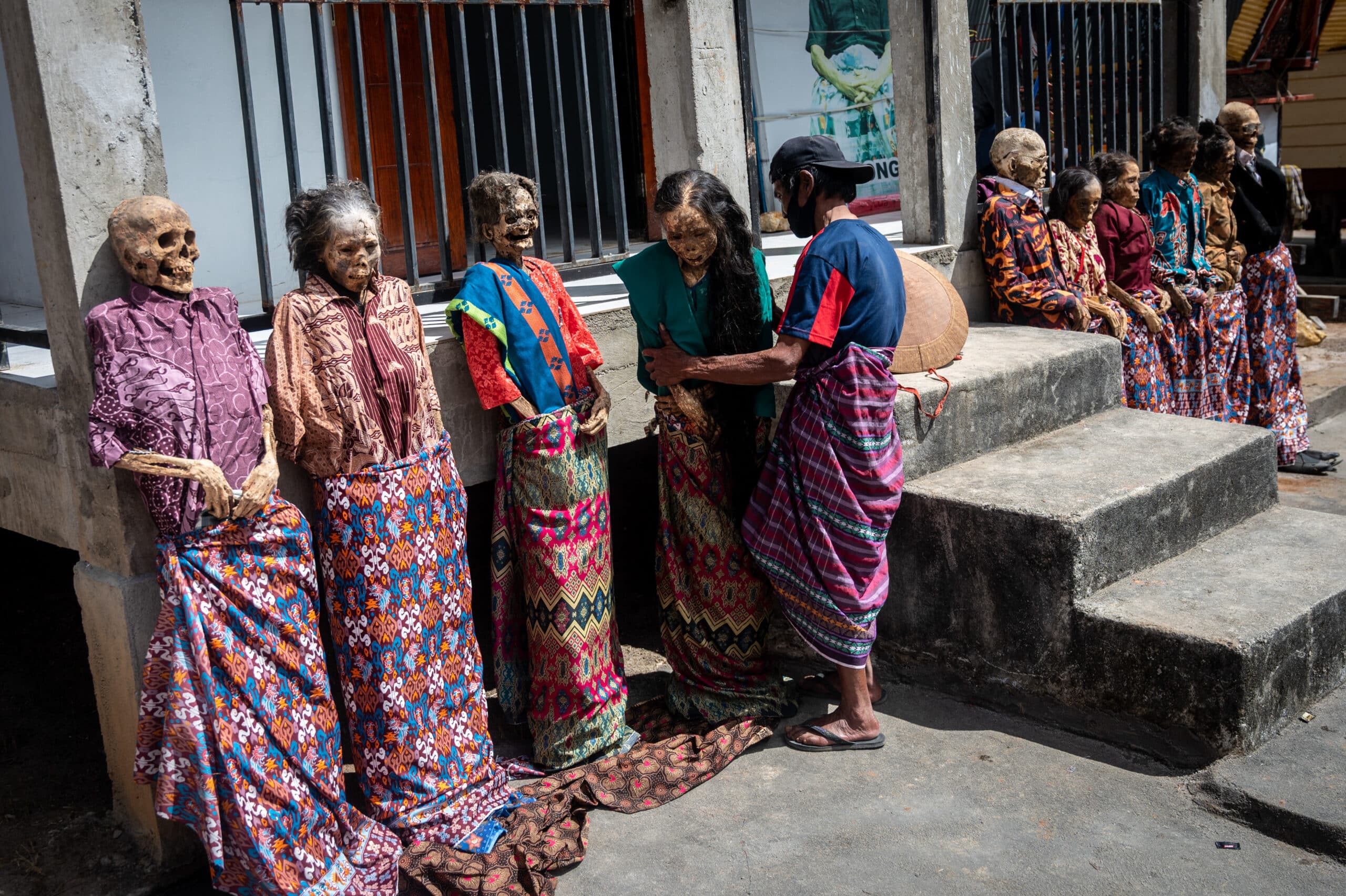
This picture taken on August 28, 2020 shows a family member cleaning the preserved corpses of relatives during a traditional ritual called “Manene” in Panggala, North Toraja. The ritual is held every three years when family members gather to clean the graves and change the clothes of their deceased relatives to honour their spirits. FILE PHOTO/Agence France-Presse
INDONESIA — A family on an Indonesian island poses with a relative dressed in a school uniform, while an elderly member of the local community stands patiently as loved ones put a sarong and a white shirt around him.
But the student is not off to class and their forebear is not going out — they are both dead.
Residents around Indonesia’s North Toraja regency on Sulawesi island have been celebrating a weeks-long ceremony called “the Manene”.
READ: Dressing the dead: Indonesian villagers clean corpses in afterlife ritual
Hundreds of corpses including those of babies are brought out in North Toraja’s villages — some from tombs locally known as patane –- as part of a ritual to honour their ancestors.
“All family groups gather, each come to check on parents, grandmothers, relatives who are in the patane,” Kapala Pitu villager Yuliana Kombong Palino, 51, told AFP.
“We all gather, work together, clean (the bodies) and then change the clothes.”
READ: Ibaloy burials ensure the dead at peace on Mt. Pulag
Coffins holding the preserved bodies of loved ones are pulled from a burial cave carved into the mountainside.
The remains are then put back in their resting place one or two days before their graves are closed again until the next ritual, Yuliana added.
A few of the bodies remain relatively intact because of the mummification process, while others have deteriorated to skeletal remains.
‘Strong’ bond
The ceremony is carried out by the Torajans, an ethnic group of around a million people on Sulawesi island.
They believe the spirits of the dead will linger in the world before their funeral ceremonies and will begin their journey to the land of the spirits after their souls are immortalized.
“The Torajans will always remember their ancestors, even after they are dead. The bond is strong,” said Benteng Mamullu resident Samuel Matasak.
Depending on the village, the Manene is usually held every few years after the rice harvest in August or September, Samuel said.
It is the first time in 40 years that a Manene ritual is being held in the two North Toraja villages of Kapala Pitu and Benteng Mamullu, residents told AFP.
The deceased were previously mummified through an embalming process using natural preservatives such as sour vinegar and tea leaves.
But many families now inject a formaldehyde solution into the corpse.
The corpse’s display can be a shocking for onlooking Western tourists.
But for locals, the Manene ritual is an expression of affection to their loved ones.
“When the Manene is carried out, it is a joy for me personally that we can realise or express our love to our parents who had died, to our grandmothers, child, to relatives,” Yuliana said.
“Maybe there are some things that we have not had the chance to do in their lifetime. We can realise it right now.”